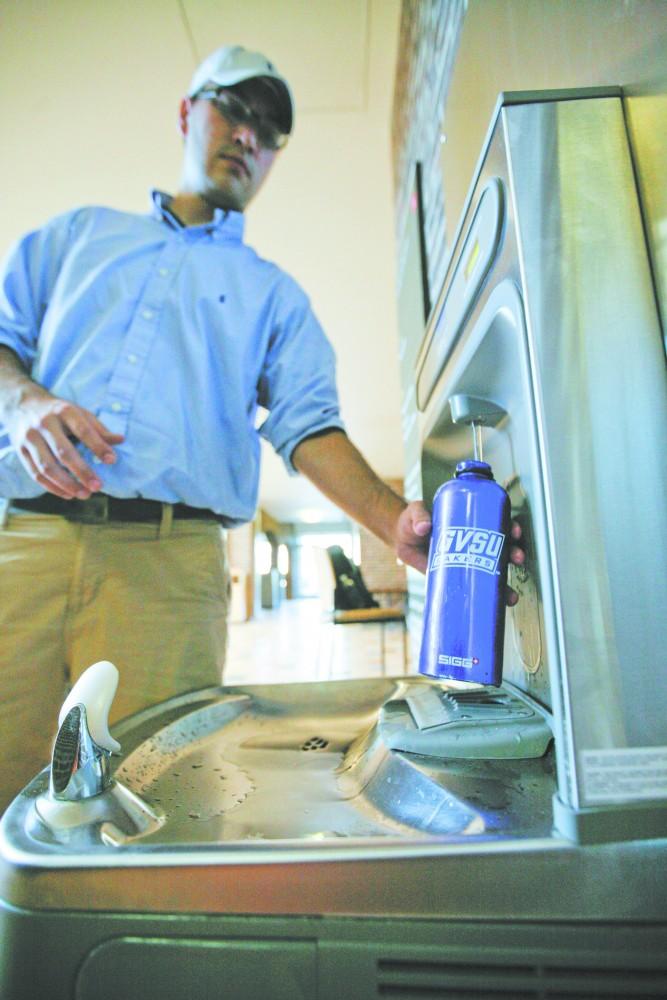Water bottle refilling stations offer sustainable alternative

Sep 12, 2011
Facilities Services at Grand Valley State University plans to continue expanding water bottle refilling stations to new areas of campus and West Michigan after the project’s initial success last year.
The stations on the GVSU campuses provide students with a sustainable alternative to disposable plastic water bottles.
The idea for the project began when students and staff expressed an interest in seeking environmental-friendly options for drinking water. Bart Bartels, campus sustainability manager, said the stations offer a variety of sustainable benefits, including cutting down on 2.48 million tons of plastic bottle waste and offering cleaner and cheaper water than store-bought water.
According to The Pacific Institute, which works to advance environmental protection, the environmental impact of bottled water can be the equivalent of filling a plastic water bottle one-quarter full with oil. “
The stations at GVSU also help to reduce energy costs. Three out of four single-use drink containers are thrown out directly after use, causing both damage to the environment and increasing energy costs for recycling, Bartels said.
“Such statistics point out how a small reduction in plastic purchases can have a significant effect on our environmental impact,” he said.
Since the initial units were put in place, other campuses and schools have taken up the idea. The Cook DeVos Center for Health Sciences now has a number of them, and both Muskegon Community College and Grand Haven Public Schools have had inquiries about the refilling stations, said Dave Feenstra, maintenance supervisor of Facilities Services.
Feenstra said the project took off about a year ago with three different refilling stations, and it was well received almost immediately.
“Now the students can be sustainable by using good, clean tap water,” he said.
Facilities Services took existing drinking fountains and added a filter system, water filling sensor and LED readout to each unit. The readout tells users how many bottles of water have been kept out of the environment by the unit.
Shortly thereafter, the Student Environmental Coalition became interested in the data recorded by the refilling stations and provided support for the three most recent units, stationed in Manitou Hall, Mackinac Hall and the Zumberge library. The Sustainable Community Reinvestment Fund sponsored the installment of the new units. The SCRF provides students and faculty with access to grants and loans to be used for sustainable development.
“Other institutions have noticed our refilling stations and are attempting similar projects,” Bartels said. “For instance, a local high school installed two refilling stations to allow students the option of drinking water with their lunch, something that surprisingly was not available.”
Norman Christopher, the executive director of the Sustainable Community Development Initiative, said initiatives such as this help save the university money.
“Sustainability projects that are driven by students and faculty on campus help to embed sustainability guiding principles,” he said. “Applying sustainable development practices can provide staff with cost savings and efficiencies.”
Feenstra said he hopes to install at least three more at GVSU by the end of the year in heavy-populated areas such as Henry Hall and the main floor of the Recreation Center.























